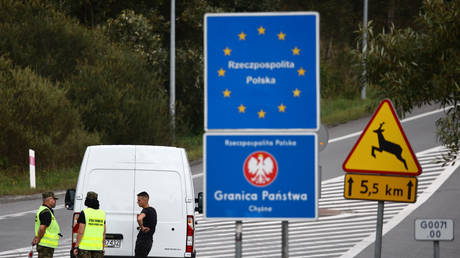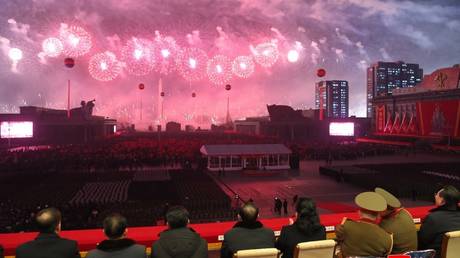
Warsaw cited an increase in illegal migrants traveling through Slovakia as the reason for the move
The Polish government will implement temporary controls on the country’s border with Slovakia in connection with a growing number of illegal migrants trying to pass into Germany via the Balkan route, Internal Affairs Minister Mariusz Kaminski announced at a press conference on Tuesday.
Kaminski stated that in just the past two weeks Polish authorities had detected and detained a total of 551 illegal migrants at the border and that the number of illegal migrants had increased by 1000% from last year.
Both Poland and Slovakia are part of the Schengen zone, meaning that there are usually no standard border controls between the two nations.
Warsaw said the new measures were being introduced for an initial period of ten days. The commander of the Polish Border Guard, Tomasz Praga, noted that the controls can subsequently be renewed for periods no longer than 20 days. Another representative of the Border Guard also stated during the press conference that the total period during which border controls can be restored cannot exceed two months.
“We take such actions because we are a responsible state. We are effectively defending the border with Belarus and we hope that the problem in the Balkans and on the Polish-Slovak border will be effectively solved,” said Kaminski.
The interior minister blamed Brussels’ policies for the wave of refugees, saying the EU’s migration policy is “irresponsible and inadequate to reality.”
“The only appropriate response to the wave of illegal migration is tough protection of the EU’s external borders and a change in the asylum system,” he said.
Meanwhile, the Czech Republic has also announced border controls with Slovakia. Prime Minister Petr Fiala stated that “thanks to the inspections, we will be able to even better ensure the safety of our citizens,” noting that Prague is actively combating smugglers and “traders in human misfortune.”
Last month, German authorities also decried the influx of asylum seekers to the country and introduced police patrols at its borders with Poland and the Czech Republic. German Chancellor Olaf Scholz stated that the number of refugees arriving in Germany was “too high” and insisted that the migration situation needed to be changed.
“Things cannot remain as they are now: more than 70% of all refugees who arrive in Germany have not been registered beforehand, even though almost all of them have been in another EU country,” Scholz said.




